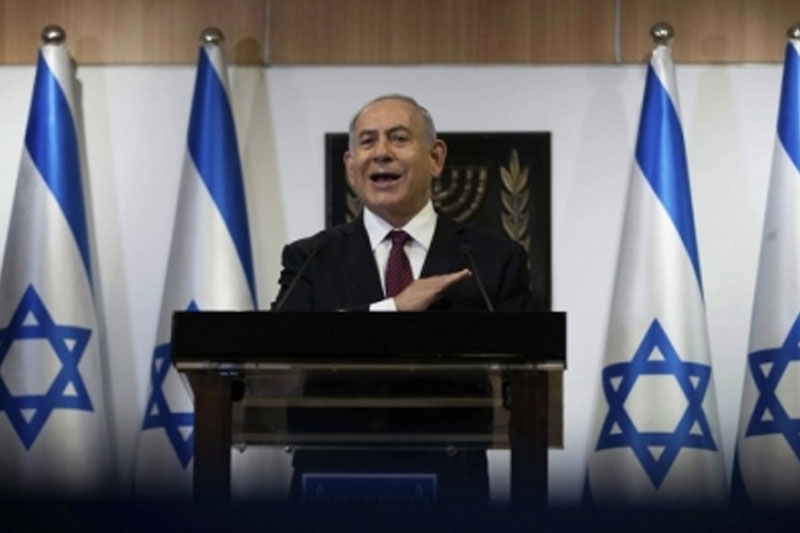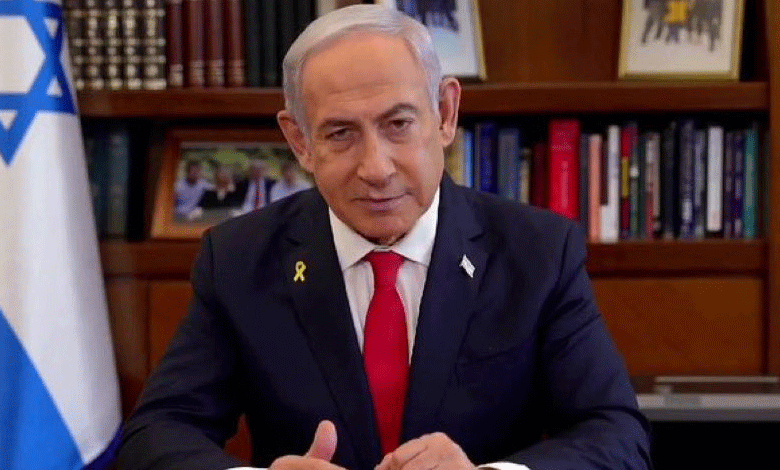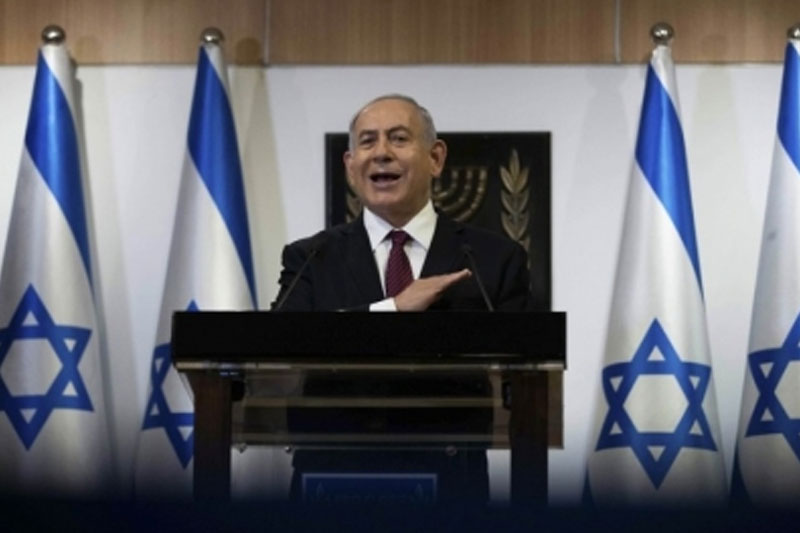Israeli Prime Minister Netanyahu Threatens to Cancel Ceasefire Agreement with Hamas, here is Why
Israeli Prime Minister Netanyahu has threatened to cancel the ceasefire agreement with Hamas, citing the failure of Hamas to provide a list of hostages. The release of prisoners and terms of the agreement remain at risk.

Israeli Prime Minister Netanyahu has threatened to cancel the ceasefire agreement with Hamas, citing the failure of Hamas to provide a list of hostages. The release of prisoners and terms of the agreement remain at risk.
Tel Aviv, Israel: Israeli Prime Minister Benjamin Netanyahu has threatened to cancel the ceasefire agreement with Hamas in Gaza, stating that the agreement will not proceed until the names of the hostages to be released are provided. Netanyahu emphasized that Israel would not begin implementing the Gaza ceasefire deal unless it received the names of the prisoners who are set to be released.
Table of Contents
Ceasefire Agreement at Risk
In a statement, Netanyahu said, “We will not start the Gaza agreement until we get the names of the prisoners who will be released today.” He further added that Hamas had not yet provided the list of hostages, preventing any further progress on the deal. Netanyahu made it clear that Israel would not tolerate any violations of the ceasefire agreement and that Hamas alone would bear the responsibility for any breach of the prisoner exchange terms.
Hamas’ Response and Terms of Release
In contrast, Hamas revealed that lists of the prisoners to be released would be published ahead of every exchange day. Hamas confirmed that the process of releasing Israeli hostages would depend on how many Palestinian prisoners Israel would free in return.
Also Read: South Korean Ex-President Yoon Suk Yeol Arrested Amid Political Unrest
A statement released by Hamas on Saturday reiterated that the disclosure of the names of the released prisoners is in accordance with the terms of the agreement. Hamas also added that the procedure for the release of Israeli hostages would be contingent on the number of Palestinian prisoners Israel agrees to release.
Ceasefire Agreement Details and Warnings
The ceasefire agreement between Israel and Hamas is set to go into effect on Sunday at 08:30 AM local time, just hours after Israel published a map showing areas in Gaza where Palestinians are prohibited from going. The Israeli military issued a warning to residents of Gaza, particularly those in the south, advising them not to head towards the northern areas or the Netzarim road, as these regions remain dangerous. The military confirmed that troops will remain deployed in specific areas of Gaza, and further warnings will be issued if people approach these zones.
According to a statement from the Egyptian Ministry of Foreign Affairs, the first phase of the ceasefire agreement, which will last 42 days, will see the release of 33 Israeli hostages in exchange for over 1,890 Palestinian prisoners. The release will occur in stages over the coming weeks.

Prisoner Swap and Timetable
On the first day of the agreement, three Israeli female soldiers will be released. Three others will be freed on the seventh day, followed by the release of four on the 14th day. By the 21st day, three more hostages will be released, with further exchanges taking place on the 28th and 35th days.
In return, Israel has published a list of over 700 Palestinian prisoners who will be freed during the first phase of the agreement. On Saturday morning, the Israeli Ministry of Justice released the names of 737 Palestinians who will be set free. However, the Ministry clarified that the list would not be made public until 4 PM local time on Sunday.
Controversial Prisoner Release
The Ministry of Justice noted that among the Palestinian prisoners to be released are members of Hamas and Islamic Jihad, some of whom were serving life sentences for serious crimes, including murder. The controversial exchange has drawn criticism, with opponents questioning the implications of releasing individuals involved in violent offenses.
As the situation continues to evolve, the future of the ceasefire agreement and the prisoner swap remains uncertain, with both sides wary of violations and continuing to negotiate terms. The coming days will likely be critical in determining whether the deal will hold or unravel.

